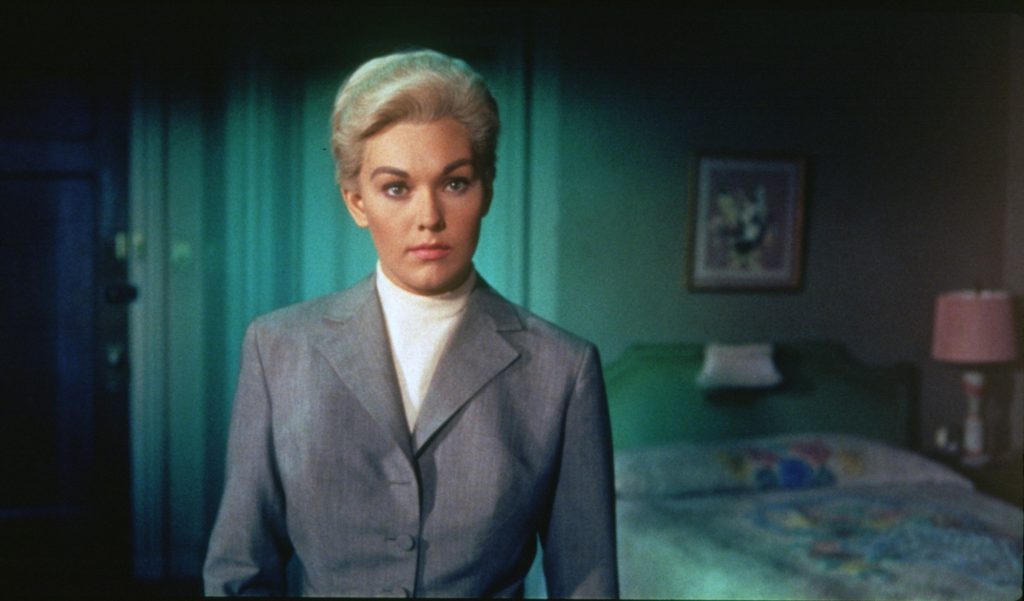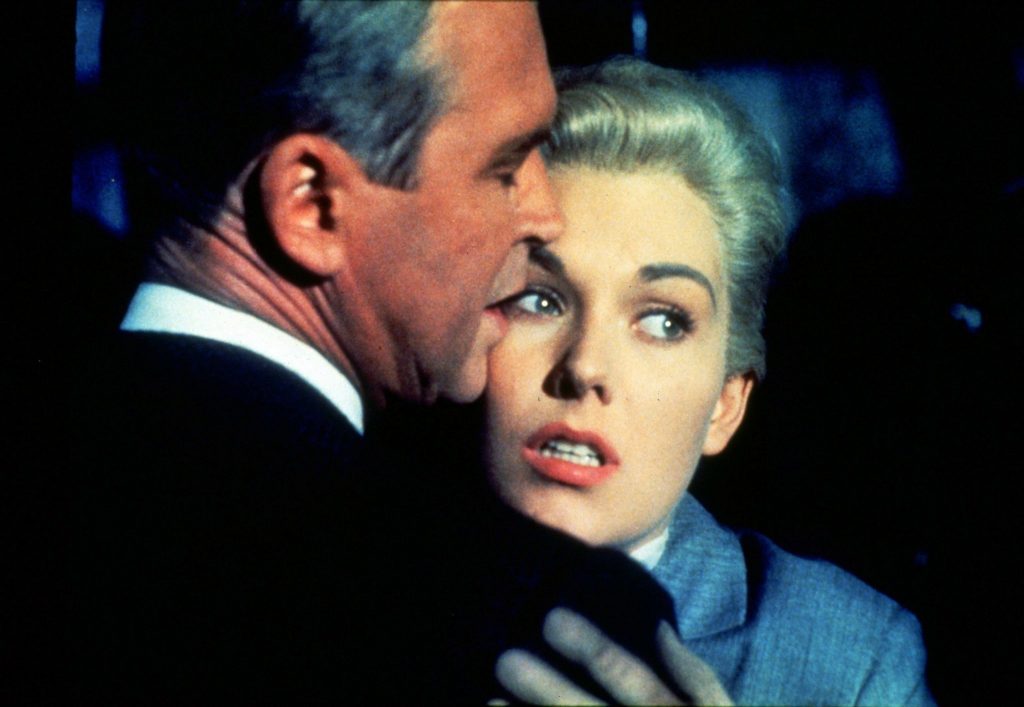If you think it is impossible to be absorbed in a very slow paced thriller starring two actors with no chemistry for 128 mins, I suggest you to see Alfred Hitchcock’s famous Vertigo, where storytelling gets ahead of the story, leaving us impressed even after an unconvincing end.
Set in between the uphills and downhills of San Francisco, the film centres John Ferguson (James Stewart), or “Scottie,” who has to retire from his detective job after being diagnosed with vertigo caused by his fear of height. He confronts his acrophobia and emotional trauma as he unravels the spookiness of Madeleine (Kim Novak) whom he is hired to follow.
The opening title sequence suggests a few insights of what to expect of the film. Extreme close up to a restlessly shot mouth and unblinking eyes that nervously check left and right hint a scared woman that wants to but cannot speak up. The dominant atmosphere and the genre is clarified, thanks to Bernard Herrmann’s eerie music, before revealing the title as she wide opens her eyes with shock. Spirals (which as an imagery is repeated with Madeleine’s hair) stand for vertigo, the dizziness which Scottie suffers from.

Not only during the credits, but the director plays with the accustomed use of a specific visual style within a film also in the dream sequence. Including animation into the film is a bold choice but would be fair to say that it aptly conveys how the character feels in his emotional crisis and the viewer is fully identified with Scottie.
Even though might seem as a minor character, Midge has a key role in bringing an insight to Scottie. She lives on a high floor in a tall building with large windows, where his fear keeps being rubbed into his face. The fact that he is highly offended when Midge playfully touches upon his obsession, implies he would rather live in a blissful fantasy than to confront the bleak sides of his life.
The narrative is intelligently structured in a way that projects a parallelism between Scottie’s spying and cinematic voyeurism. A great portion of the first half of the film elevates tension and curiosity through quite long chasing scenes. Judy, then pretending to be Madeleine, seems unaware of being followed but in fact makes him believe whatever she wants him to. This very detail mirrors how a film deludes the viewer into believing whatever is shown, simply because our knowledge is limited to what is represented in the filmic realm. But at the same time, it underlines how everything on screen is there for and only for the viewer.
For example, the scene where Judy writes a letter of confess, elucidating all the scheme, before eventually tearing it into pieces, is cleverly added in order to catch the viewer up on what is actually going on. This is the first time we know more than Scottie. During his interview with François Truffaut, the director proudly admits that he created the dramatic irony despite all the oppositions for the sake of one simple question: “Do we want suspense or surprise?”
The film begins when vertigo first shows up, and ends as it goes away. While confronting Judy on the game he has been played, Scottie finds redemption up on the bell tower and overcomes his fear of height. Ironically, he loses the same woman twice at the exact same place.

Why this end is unsatisfactory, in my opinion, lies at a performance basis: Novak fails to convince the viewer on Judy’s mad love towards Scottie; so mad that would kill her in the end. Not solely in the end, but the lack of a natural chemistry between the two leads forces the director to underline the spark between the characters at the expense of subtlety, as their love isn’t credible before the screen. For this very reason, I believe, it is an inordinately long shot when their hands touch for the first time and as they kiss at the shore, the meagre ecstasy had to be compensated with huge waves hitting up the rocks.
Long story short, Vertigo is rich in details a cinephile would love to write and talk about, however it wouldn’t be on top of my list if a friend asked me which film to see on a nice Sunday afternoon.
